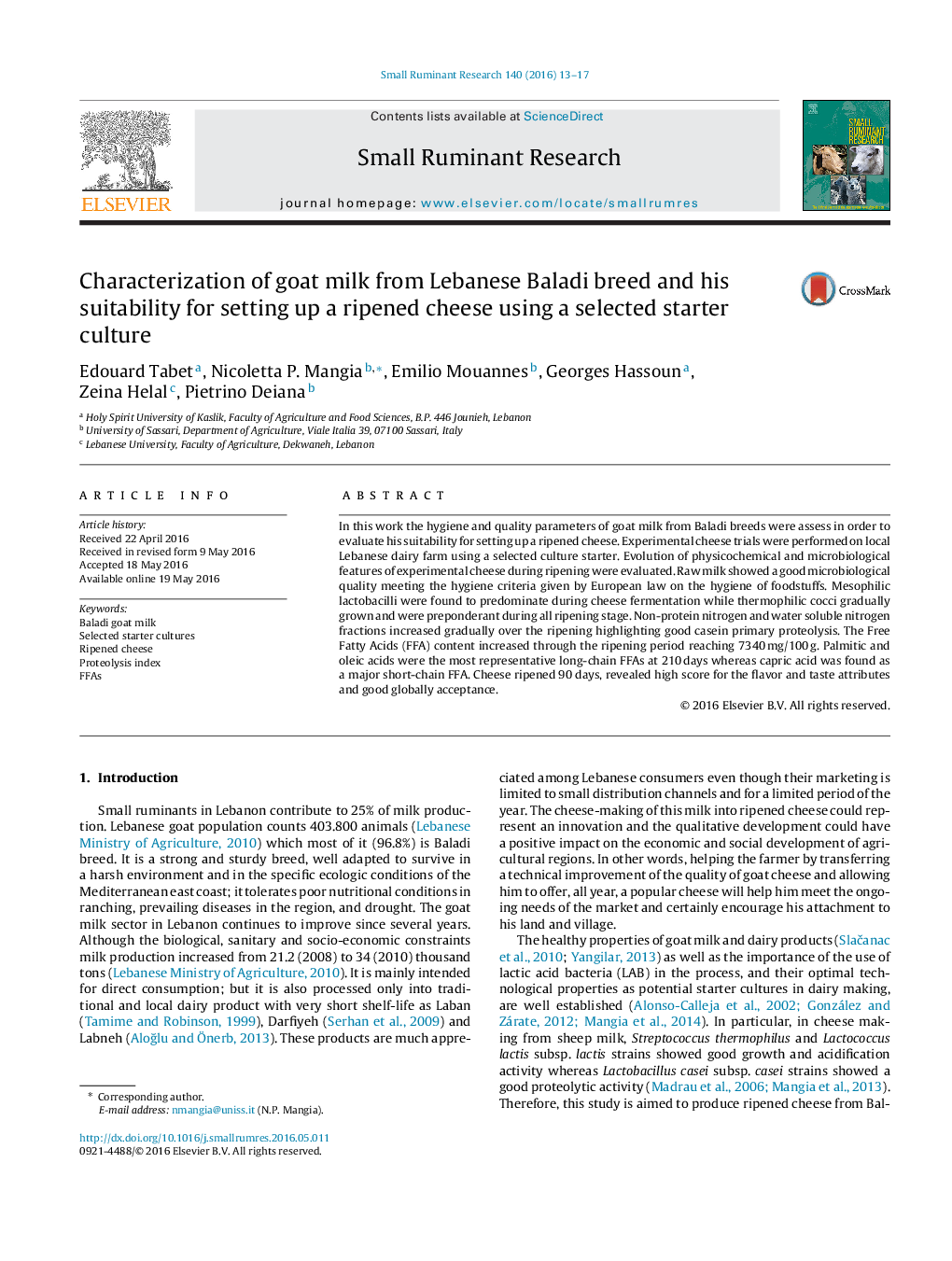| Article ID | Journal | Published Year | Pages | File Type |
|---|---|---|---|---|
| 2456655 | Small Ruminant Research | 2016 | 5 Pages |
•The first manufacturing of ripened cheese from Baladi goat milk was proposed.•Physicochemical and microbiological parameters were evaluated.•Thermophilic cocci were dominant during all cheese ripening.•Higher content of free fatty acids was observed.
In this work the hygiene and quality parameters of goat milk from Baladi breeds were assess in order to evaluate his suitability for setting up a ripened cheese. Experimental cheese trials were performed on local Lebanese dairy farm using a selected culture starter. Evolution of physicochemical and microbiological features of experimental cheese during ripening were evaluated. Raw milk showed a good microbiological quality meeting the hygiene criteria given by European law on the hygiene of foodstuffs. Mesophilic lactobacilli were found to predominate during cheese fermentation while thermophilic cocci gradually grown and were preponderant during all ripening stage. Non-protein nitrogen and water soluble nitrogen fractions increased gradually over the ripening highlighting good casein primary proteolysis. The Free Fatty Acids (FFA) content increased through the ripening period reaching 7340 mg/100 g. Palmitic and oleic acids were the most representative long-chain FFAs at 210 days whereas capric acid was found as a major short-chain FFA. Cheese ripened 90 days, revealed high score for the flavor and taste attributes and good globally acceptance.
